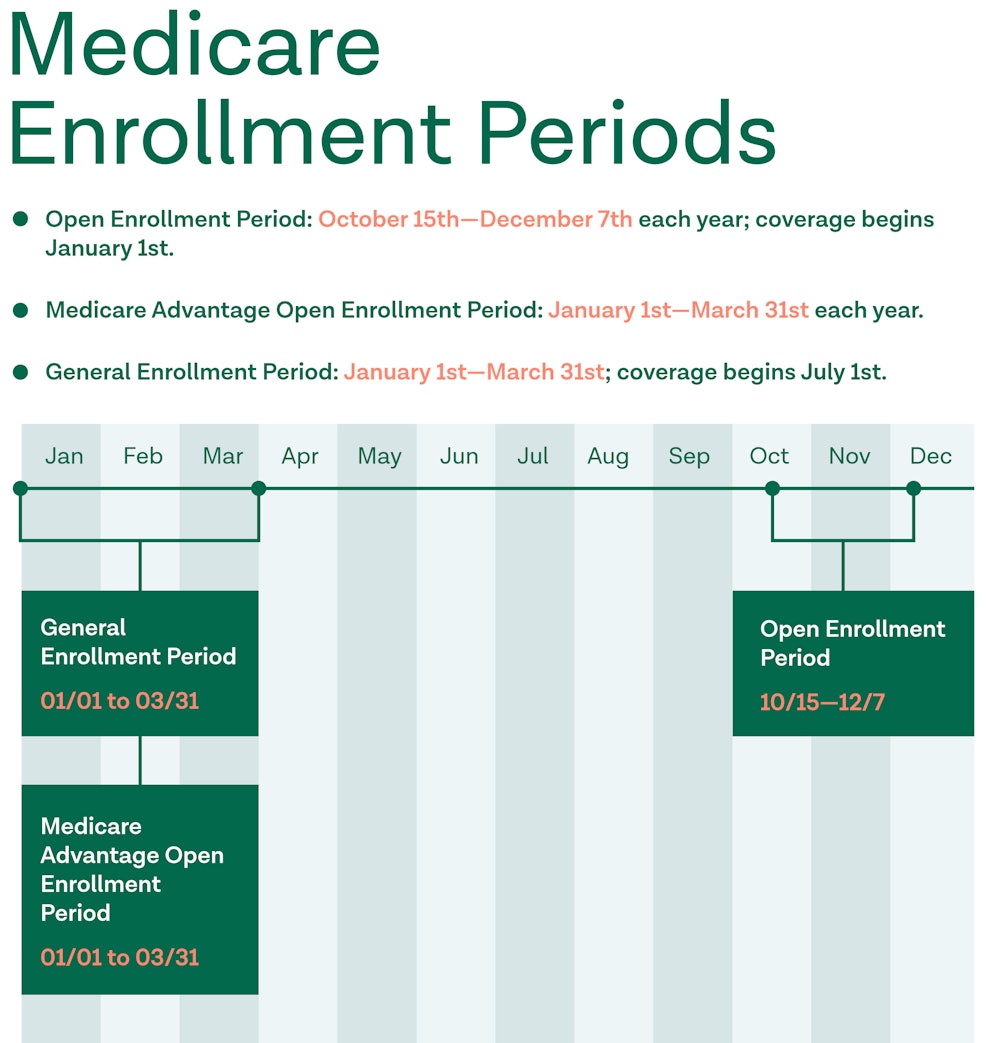Changes in Medicare 2023: What Medicare Beneficiaries Need To Know
Article at a glance
In 2023, there will be changes to the costs of Medicare premiums and Medicare deductibles, as well as changes to Medicare benefits, Medicare coverage, and enrollment access.
Is important to Medicare beneficiaries and Medicare enrollees to stay up-to-date about upcoming changes for 2023 in order to know what they are expected to pay.
2023 marks some of the biggest changes to come to the Medicare program in years such as decreased Medicare Part B costs.

Each year, the Federal Medicare Program undergoes a number of adjustments. This includes overall changes to Medicare benefits and coverage, costs, and more. However, in 2023, some of the biggest changes to occur in years will take place in the Medicare health insurance program.
Here are the changes Medicare beneficiaries and Medicare enrollees should expect in 2023 when it comes to Medicare coverage.

Medicare Health Plan Changes In 2023
There will be a number of changes coming to Medicare’s health plans, including pricing. Read on to learn about the specifics.
Medicare Part A Costs 2023
Medicare Part A is Medicare’s hospital insurance that covers health services received during inpatient stays at the hospital, a skilled nursing facility, or hospice care.
In 2023, Medicare Part A costs will be increasing in the following ways:
Inpatient Hospital Deductible: $1600 per stay (an increase of $44 from 2022)
Daily Coinsurance For 61st-90th Day Of The Benefit Period: $400
Daily Coinsurance For Lifetime Reserve Days: $800
Skilled Nursing Facility Coinsurance: $200
Monthly Premium (Full Amount): $506 (a $7 increase from 2022)
Note: Most Medicare beneficiaries do not need to pay the Medicare Part A monthly premiums, so long as they worked for at least 10 years and paid Medicare taxes. Learn more about Premium-free Part A at this resource.
Medicare Part B Costs 2023
Medicare Part B is Medicare’s medical insurance that covers medically necessary services and supplies and preventive services. As well, Medicare Part B coverage includes durable medical equipment (DME), ambulance services, mental health care, and more.
In 2023, Medicare Part B coverage will decrease its costs in the following ways:
Annual Medicare Part B Deductible: $226 in 2023 (A decrease of $7 from 2022)
Medicare Part B Monthly Premium: $164.90 in 2023 (Note: This is the standard monthly premium amount for Medicare Part B. One’s Social Security will determine the exact amount Medicare beneficiaries pay in 2023. Also, keep in mind that the Medicare Part B monthly premium is automatically deducted by The Social Security Administration from a beneficiary’s monthly check.)
Coinsurance: 20% of the Medicare-approved amount (the amount Medicare will pay for a service)
Note: Beneficiaries can save money on their Part B monthly premium through Medicare Savings Programs. Learn more at this resource.
Medicare Part C (Medicare Advantage Plans)
Medicare Advantage plans, also known as Medicare Part C or MA plans, are Medicare plans that are provided by private insurance companies. MA plans bundle Medicare Part A and Medicare Part B into one comprehensive health plan. MA plans also often include prescription coverage as part of their policies (Medicare Part D) as well as additional benefits including dental, hearing, or vision care.
While changes will be specific to the MA plan one is enrolled in, Medicare Advantage is expected to continue growing in 2023, with experts predicting that half of all Medicare enrollees will select an MA plan this year.
Medicare Part D (Prescription Drug Coverage)
Medicare Part D consists of Medicare prescription drug plans. By September 1st, 2023, Medicare will announce 10 Medicare Part D drugs they will begin negotiating the pricing on with drug manufacturers. These 10 drugs were selected from the top 50 drugs used by Medicare beneficiaries. Any price adjustments to these 10 drugs would then take effect in 2026.
Note: Learn more about drug negotiations at this resource.
Additional Changes in Medicare 2023
In addition to changes in pricing for Medicare coverage, there will be other changes coming in 2023 including changes to the way prescription drugs are priced, free vaccines, expanded enrollment access, and more. Read on to learn about the specifics.
Insulin Copays Will Be Capped
Due to the Inflation Reduction Act that was passed in 2022, a 30-day supply of any type of insulin covered by Medicare Part D will be capped at $35. This was effective as of January 1, 2023.
Note: Even if Medicare enrollees have not yet met their Medicare Part D deductible, they still will never need to pay beyond that $35 for insulin.
Free Vaccinations Available
The Inflation Reduction Act also expanded its free vaccines offerings. According to the new law, vaccinations recommended for adults by the Centers for Disease Control and Prevention (CDC) and Prevention’s Advisory Committee on Immunization Practices (ACIP) will now be available to Medicare beneficiaries at no cost to them. This includes the Shingles vaccine, Shingrix.
Certain Telehealth Rules Will Change
Because of the COVID-19 pandemic, Medicare expanded its offering of telehealth (i.e. provider phone call appointments were now permitted and a larger network of providers were available for telehealth visits, such as physical therapists).
Medicare was able to expand its telehealth offerings because of the emergency declaration. Currently, these telehealth rules will remain in effect until December 31, 2024.
Increased Focus On Behavioral Health
In 2023, Medicare will begin hiring behavioral health professionals (i.e. psychologists, social workers, etc.) to be part of a beneficiary’s primary care visit. Medicare will also expand its access to substance use programs. Learn more about this initiative at this resource.
Note: Learn more about behavioral health at this resource.
Access To Dental Will Be Added
Medicare does not include routine dental coverage within its plans. Routine dental coverage includes services such as cleanings, check-ups, and other preventive care. That said, Medicare will pay for certain dental procedures in the event that the dental service is coinciding with a medical procedure that is covered by Medicare. (For example, if a tooth needed to be pulled during jaw surgery.)
In 2023, Medicare will expand its definition of what it deems as “medically necessary” dental work in relation to other medical procedures. This means that dental services not previously covered, such as a cleaning, may be covered if the cleaning would improve the outcome of the coinciding medical treatment.
Note: Some Medicare Advantage plans do include dental coverage as part of its extra offerings.
More Enrollment Access
As of January 2023, if an eligible person enrolls in Medicare during official enrollment periods (i.e. the general enrollment period), they will no longer need to wait for their Medicare coverage to go into effect.
Note: Learn more about Medicare eligibility at this resource.
Additionally, more special enrollment periods have now been created. For example, if someone missed their initial enrollment period at no fault of their own, they will still be able to enroll without penalty under the new special enrollment period.
Other new special enrollment periods include:
Individuals who missed their initial enrollment period due to a natural disaster
Individuals given incorrect information by an employer which led them to enrolling at the wrong time
Individuals who no longer qualify for Medicaid coverage

Do Medicare premiums increase based on income?
Yes. Medicare beneficiaries with higher incomes will pay an additional premium amount for Medicare Part B as well as Medicare prescription drug coverage. This is referred to as the income-related monthly adjustment amount.
How much is taken out of your Social Security check for Medicare coverage?
The amount taken out of one’s Social Security check for Medicare coverage depends on a number of factors including a beneficiary’s location, income, other health insurance, and more.

Sources
https://www.aarp.org/health/medicare-insurance/info-2023/medicare-changes-in-2023.html
https://www.medicare.gov/what-medicare-covers/what-part-a-covers
https://www.medicare.gov/what-medicare-covers/what-part-b-covers
https://www.medicare.gov/basics/get-started-with-medicare/medicare-basics/what-does-medicare-cost
https://www.aarp.org/retirement/social-security/questions-answers/medicare-premiums-deducted-ss.html
https://aspe.hhs.gov/reports/insulin-affordability-ira-data-point
https://www.aarp.org/politics-society/advocacy/info-2022/medicare-drug-price-negotiations.html
https://www.medicare.gov/basics/costs/help/medicare-savings-programs
Become a patient
Experience the Oak Street Health difference, and see what it’s like to be treated by a care team who are experts at caring for older adults.




